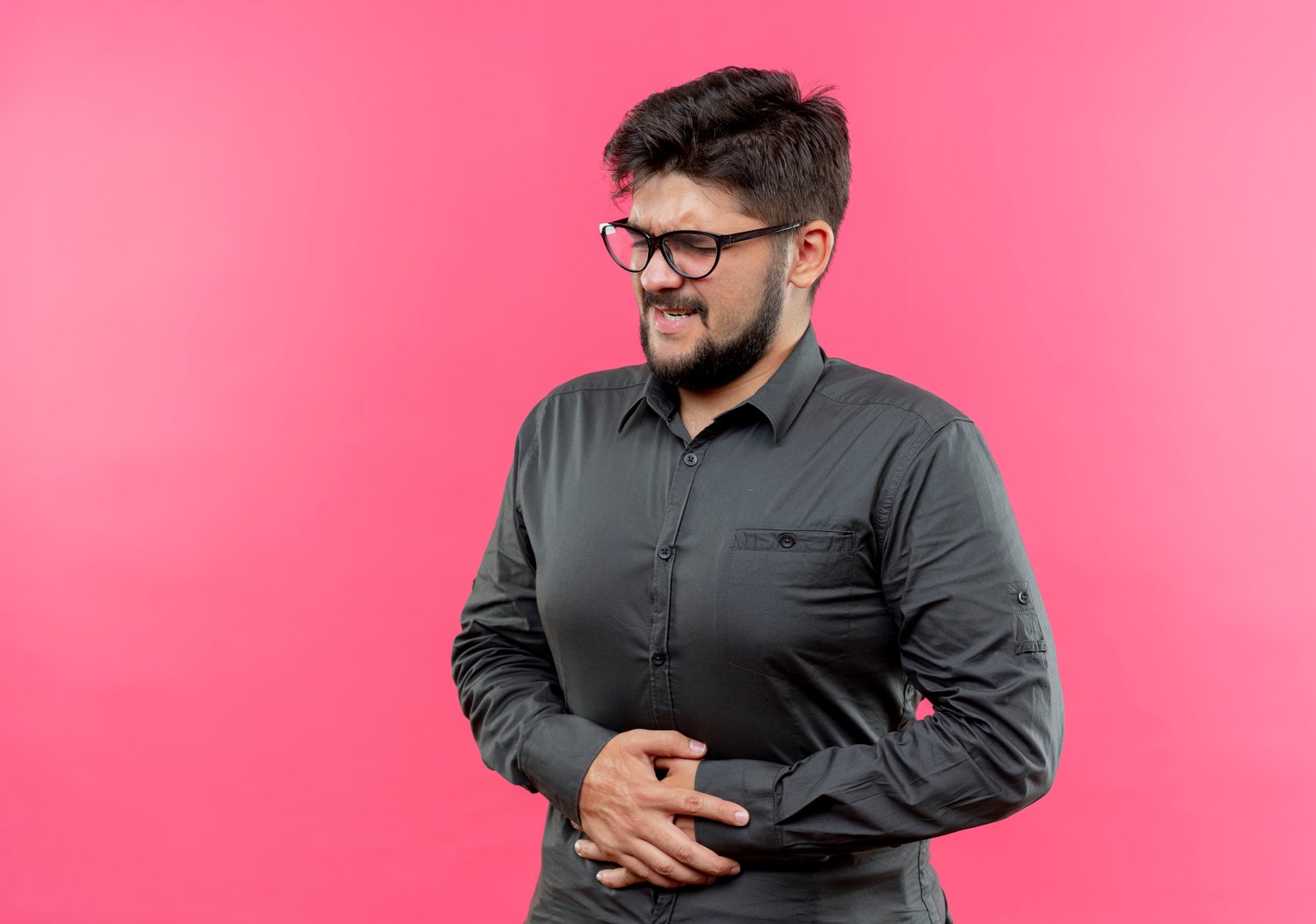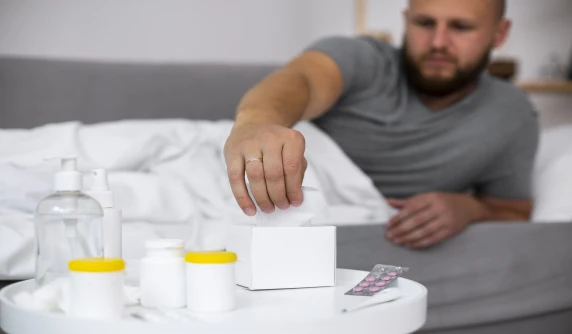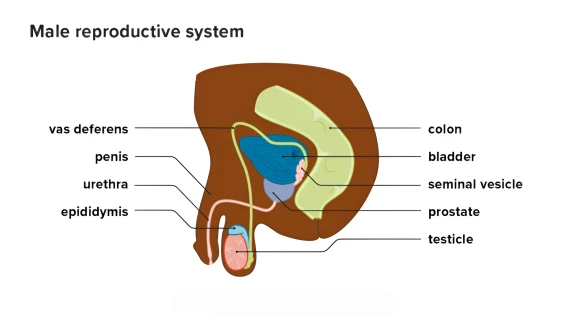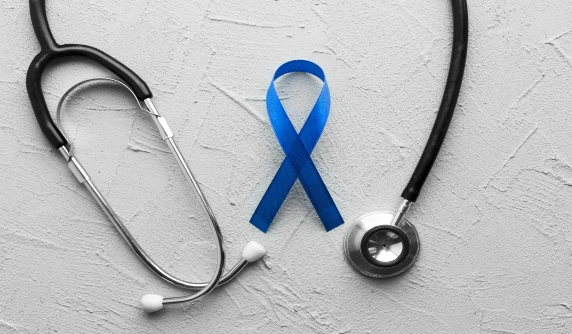
I'M GOOSEY Bloating might also appear as a tight or full belly. On certain days, you might not be able to fasten your jeans, and it might be painful and uncomfortable.
Bloating is characterized by a full, constricted abdomen and is typically brought on by gas or constipation, according to Johns Hopkins Medicine.
It's a regular occurrence; according to a 2023 study published in Clinical Gastroenterology and Hepatology, almost one in seven Americans experience bloating every week, and the majority don't seek medical attention for it.
According to Kamal Amer, M.D., a gastroenterologist at Gastroenterology Associates of New Jersey, bloating is frequent in men as well, despite the fact that women were twice as likely as men to report it to their doctors.
"There are many men who come to me for assessment due to bloating" he states.
When they do, according to Dr. Amer, he talks to patients about diet right away. A wide variety of foods can give you gas, and constipation or bloating can be a symptom of certain food allergies or intolerances.
Along with other lifestyle habits like how often someone works out, eats, and smokes, he also talks about what drugs or supplements people take.
According to Dr. Amer, "In addition, we do assessments to rule out more serious causes, such as inflammation and infections, and to identify any underlying digestive problems." He advises visiting your doctor if you experience frequent bloating and find that no treatment seems to be working.
Numerous factors can help reduce bloating, which has multiple origins. This is a synopsis.
What causes bloating?
The two most common causes of bloating are constipation and gas.
Although gas is a normal byproduct of digestion, the Cleveland Clinic notes that excessive gas in the intestines can be attributed to fermentation, the process by which your gut bacteria break down carbohydrates.
If you had too much fermentation, it could be due to a gastrointestinal disorder, a food sensitivity, or the fact that the majority of the carbohydrates you consumed weren't broken down quickly enough to reach your gut flora. This makes bloating and gas worse.
According to the Cleveland Clinic, constipation causes the contents of your digestive tract to back up, making it difficult for regular gas to pass through. Additionally, some individuals may have motility issues, which cause food to move through the digestive tract more slowly. Gas, bloating, and constipation may result from this.
Gas, constipation, and bloating may be related to your medicine, nutrition, and lifestyle choices.
How to Relieve Bloating
Bloating can cause discomfort and agony. Thankfully, there are a few things you can do to feel better:
Take a look at your diet
"Diet is a major factor in bloating" Dr. Amer states. It's possible that you have an underlying lactose, fructose, or gluten sensitivity.

He claims that some people have trouble digesting specific molecules found in foods like dairy, wheat, oats, and fruits like apples and apricots, which can lead to bloating, constipation, and diarrhea. Broccoli, cauliflower, and Brussels sprouts are examples of cruciferous vegetables that can be gas-producing and difficult to digest. According to Dr. Amer, so can beans and fried meals.
Fermentable oligosaccharides, disaccharides, monosaccharides, and polyols (FODMAPS) are short-chain carbohydrates that the body is not always able to properly digest.
They are found in a lot of these foods. A low-FODMAPS diet, which excludes dairy, wheat, beans, and some fruits and vegetables, might occasionally be beneficial, but according to Dr. Amer, it can be challenging to stick to.
Caroline Susie, R.D.N., L.D., a spokesperson for the Academy of Nutrition and Dietetics, advises keeping a food journal that you can share with your doctor to record your symptoms after eating and determine which foods may be the cause of your bloat.
Increase your fibre intake
Fiber facilitates better digestion and lessens bloating and constipation. Susie notes that although most men don't consume nearly enough, males require roughly 38 grams of fiber every day.

You may improve your intake of fiber by consuming more whole grains and fresh fruits and vegetables, she says. But your body takes time to adjust, and consuming too much fiber too soon may make you feel more bloated.
"Increase your intake gradually and make sure to up your water intake as well to avoid any stomach distress." advises Susie. Water is absorbed by fiber, softening stools and maintaining regular digestion.
Dr. Amer adds that fiber supplements may also be beneficial. Select those that have methylcellulose or psyllium husk, and introduce them gradually. Bloating and discomfort may worsen if you use too many fiber supplements too frequently.
Be careful of the drugs and supplements you consume
According to Dr. Amer, bloating and constipation can be brought on by some drugs, including antibiotics, iron supplements, and painkillers (particularly opiates). See your doctor if any of these adverse effects are occurring for you. They might be able to recommend an alternative.
Examine the vitamins you consume as well. In addition to fiber supplements, Dr. Amer notes that protein powders frequently include artificial sweeteners or lactose, which can make some people bloated. Bloating is another effect of creatine.
He advises starting with a modest dose of probiotic pills and gradually increasing them because some of them may induce bloating when you first start taking them.
Cut back on carbonated drinks
Constipation can be avoided and your digestive system can benefit from drinking lots of fluids. Simply stay with steady water. Carbon dioxide, which is used to make carbonated drinks like sodas and beer, can worsen gas and bloating, according to Dr. Amer.
Get more exercise
Exercise facilitates the release of excess gas and stool and improves gut motility, or how well food passes through your digestive system, according to Susie. Bloating can be reduced by walking more frequently or by just becoming more active in general.
Try some yoga poses
Susie adds that doing yoga can help stimulate your digestive system. Certain positions, such as happy baby or child's posture, can aid in the release of extra gas, which should lessen bloating.

Try diaphragmatic breathing
Some bloating patients may find relief with diaphragmatic breathing, also known as deep-belly breathing, according to Dr. Amer. According to the University of Michigan Health, when the diaphragm is engaged, the parasympathetic nervous system—the body's relaxation response—is triggered, giving the stomach and intestines a "gentle massaging" sensation.
To give it a shot:
-
Shut your eyes when you sit or lie down.
-
Place a hand on your chest and another on your abdomen.
-
Observe that the hand on your abdomen is moving while the one on your chest is not during the four seconds that you breathe in through your nose.
-
Breathe in and out for two seconds.
-
Take a six-second deep breath out through your lips slowly.
-
For a maximum of fifteen minutes, repeat the breathing.
Avert overeating and eating too quickly
According to Dr. Amer, overeating or eating too quickly can cause you to swallow more air, which worsens gas and bloating. To avoid overindulging, he advises eating smaller, more frequent meals, eating more slowly, and thoroughly digesting your food before swallowing.
Stop smoking
Giving up smoking has several health advantages. It might also lessen bloating. Smoking is linked to bloating primarily due to air that is swallowed, according to Dr. Amer.
Avoid chewing gum
Artificial sweeteners, which include sugar alcohols that some people find exacerbate bloating, are frequently found in gum, according to Dr. Amer. Chewing gum can cause you to swallow more air, which raises the risk of bloating.
Try homeopathic remedies
Bloating can be relieved by certain natural therapies, according to Susie. For example, peppermint may aid in the relaxation of intestinal muscles, facilitating the passage of gas and feces.
However, she advises against using peppermint if you have acid reflux because it could exacerbate the condition. Ginger and chamomile may also be helpful. Taste teas made with these components.
Take an OTC gas reliever
To reduce bloating, Dr. Amer suggests beginning with food adjustments and lifestyle changes. However, you could try simethicone-containing over-the-counter drugs for gas relief.
It is recommended to take these medications as needed, which is often every eight hours or so until the bloating stops. Dr. Amer cautions that they might not be helpful to everyone.
When to See a Doctor
Seeking medical attention is crucial if you have persistent bloating, since it may indicate a more serious medical condition, advises Dr. Amer.
These consist of irritable bowel syndrome, small intestinal bacterial overgrowth (SIBO), gluten or lactose intolerance, infections, and inflammatory bowel disease. According to him, disorders like diabetes or anxiety may be linked to symptoms like bloating and constipation.
According to Dr. Amer, if your bloating is accompanied by other symptoms like weight loss, diarrhea, bloody stools, abdominal pain, or fever, you should consult a doctor right once.
FAQ for Understanding and Reducing Bloating:
Causes of Bloating
-
Gas: The most common cause, often due to fermentation of carbohydrates or swallowing air.
-
Constipation: Backed-up digestive contents can lead to bloating and discomfort.
-
Food sensitivities: Reactions to certain foods like lactose, gluten, or FODMAPS can trigger bloating.
-
Medications and supplements: Some drugs and supplements can contribute to bloating.
-
Underlying conditions: In rare cases, bloating may indicate a more serious health issue.
Relieving Bloating
-
Dietary changes: Identify and limit gas-producing foods, increase fiber intake gradually, and consider a low-FODMAPS diet if needed.
-
Hydration: Drink plenty of water to aid digestion and prevent constipation.
-
Exercise: Regular physical activity improves gut motility and helps release gas.
-
Relaxation techniques: Yoga, deep breathing, and stress management can improve digestion.
-
Lifestyle adjustments: Avoid overeating, chewing gum, and smoking.
-
Home remedies: Peppermint, ginger, and chamomile tea may offer relief.
-
OTC medications: Simethicone-based drugs can help manage gas symptoms.
When to See a Doctor
-
Persistent bloating (lasting weeks or months)
-
Bloating accompanied by weight loss, diarrhea, bloody stools, abdominal pain, or fever
-
Suspicion of an underlying medical condition
Additional Tips:
-
Keep a food diary to identify potential triggers.
-
Consult a registered dietitian for personalized dietary advice.
-
Don't ignore chronic bloating; seek medical evaluation if necessary.
Remember
This information is for educational purposes only and should not be construed as medical advice. Always consult with a healthcare professional for diagnosis and treatment of any medical condition.



